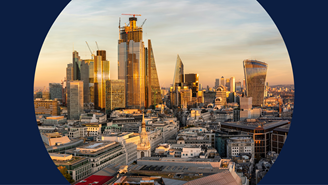In recent years, an increasing number of nations, particularly in Africa, have been amending their mining codes. Governments likely view these amendments as a way of getting more for their people from their natural resources. But are these amendments slowly leading to the nationalization of the sector in some of these countries and how are the companies reacting?
What is a Mining Code and why is it important?
In its simplest terms, a mining code is a compilation of the laws and regulations mining companies must follow while operating in a particular jurisdiction. They set out the license requirements, tax regime, royalty payments, and most importantly provide a “stability clause”, the period that the mining company can expect to operate under the terms of the code.
In many jurisdictions, mining codes were introduced by the World Bank and International Finance Corporation to ensure that investment into newly independent nations was suitably structured.[i] Together with the stability clauses, these codes helped attract foreign mining company investment, but on arguably company-friendly terms.
Many of the mining codes and joint ventures with foreign companies in place today were drawn up when commodity prices were low and often under previous governments. The problem now for many resource-dependent countries is that their national budgets are often significantly impacted by commodity price fluctuations. Many African countries are still struggling because of the commodity price crashes of a few years ago. Is this perhaps the reason behind the trend of countries revising their mining codes?
Where have mining codes changed?
Several countries have been changing their codes over the past few years.
- South Africa passed its Mining Code 3 in April 2017, only to suspend it after mining companies threatened court action. The code was reintroduced in February 2018, and came into force in December 2018, with a five-year transition period for companies to comply. This followed extensive consultation with the industry, which based on our dialogues, remains unhappy with some elements of the code such as the proposed increase of local ownership upon re-registration of licences, or 80% of capex being spent on local suppliers.
- In 2017 Tanzania passed a new law that, if enforced, could block foreign-owned banks, insurance and law firms from the mining sector and give the government the right to re-negotiate or dissolve current mining contracts. Whilst making it compulsory for foreign-owned mining companies to offer shares to the government (a 16% free carried interest) and “indigenous Tanzanian companies” (5% of equity), the government is also pushing for compulsory listing of mining companies on the Dar es Salaam stock exchange.[ii]
- The Democratic Republic of the Congo (DRC) introduced a new code in March 2018.[iii] It raised tax rates on “strategic substances” from 2% to 10%, with increased royalties on other mined commodities and a reduction in the stability period from 10 to 5 years. The revised code may also require local contractors to be majority Congolese-owned, though this is still unclear. The DRC is Africa’s top copper producer and the world’s top cobalt producer.
- Zambia, Africa’s second largest copper producer, also amended its code in 2018, increasing royalties and introducing a 10% charge on copper if the price goes above USD 7,500 a metric ton.[iv]
- In August 2019, Mali, the world’s third largest producer of gold, announced a revision to its code.[v] Changes include removal of the existing VAT exemption and a decrease of the stability clause period from its current 30 years.
The revision of mining codes to benefit the national trust is not just a movement among African nations. Indonesia introduced a mining law in 2009 banning the export of unprocessed or insufficiently processed ore, meaning operators would be forced to build smelters and refine the ore in Indonesia. The government also sought to increase local ownership of operating companies. As a result of these regulations, many smaller-scale mineral miners have suspended operations, whilst some large-scale operations have reduced their mining activities and exports, with some redirecting investment away from Indonesia entirely.[vi]
In Papua New Guinea (PNG), the new Prime Minister James Marape is demanding 40% of the gold output from the new Newcrest-Harmony Gold joint venture Wafi-Golpu project be given to the government. He is quoted as saying, “if they don’t like it, we’ll mine it ourselves – we own the resources.”[vii] Barrick Gold and Zijin Mining’s joint venture operating Porgera mine is seeking a 20-year lease extension and could experience a similar demand from the PNG government.
Company reactions
Companies have limited options when it comes to dealing with new mining codes. They can: grumble and accept the new rules, reduce the scale of their operations, place operations on care and maintenance,[viii] close completely or divest.
Following changes to Indonesia’s mining code, Freeport lost its majority stake in Grasberg in 2018.[ix] Other mining companies have left Indonesia altogether after selling to local companies. BHP and Newmont divested their last remaining operations in 2016.[x], [xi] Indonesia has experienced a sharp reduction in foreign investments and a rise in its balance of payments deficit.
In the DRC, Glencore has announced the closure of its Mutanda mine at the end 2019.[xii]
In Zambia, Vedanta has been in the South African arbitration courts to prevent the seizure of its Konkola Copper Mines by the Zambian government, which is seeking alternative operators for the site. At the same time, Glencore has announced the closure of two of the less profitable shafts at its Mopani Copper operation.
It is perhaps telling that Glencore’s most recent acquisition was PolyMet Mining in Minnesota – a far more stable mining regime.[xiii]
Who will win in the long term?
In an ideal world, a mining code would benefit the nation, local communities and ensure profits for the company. A concern with current codes, however, is that the revenues from mining operations are channelled to central government. Benefits for citizens pre-supposes that any additional gains by governments filter down through often opaque governance systems.
Is it not better to gain locally from a mining operation either directly through the provision of jobs or indirectly through the local contractors supplying the operation? And what of the many social functions that mine operators often provide, such as healthcare and schools, which local governments may not currently be able or willing to provide?
As the ore bodies are not mobile, the power appears to be in the hands of national leaders, who often play tough with the foreign mining companies. But, many of these countries need the foreign direct investment to generate tax revenues and hard currency that enable them to realize returns from their natural resource endowments.
The issue is important to investors, and especially investors in smaller mining companies where the return on investment could be seriously impaired by tax increases. In addition, the push for more local ownership of resources, and the companies exploiting them, will result in a dilution of existing shareholders influence.
Sources
[i] Deneault A. and Sacher, W. William 2012, “Legal Haven of Choice for the World’s Mining Industries,” Imperial Canada Inc.
[ii] Beech W., Lovells, H., and Black Livingston, J. 28 August 2017, Mining Review Africa “Are the mining and natural resources sectors in Africa uninvestable?” accessed at: https://www.miningreview.com/industry-insight/are-the-mining-and-natural-resources-sector-in-africa-becoming-uninvestable/
[iii] DLA Pipe, 10 August 2018 “A new mining code for the DRC,” https://www.dlapiper.com/en/morocco/insights/publications/2018/08/democratic-republic-of-congo-mining-code/
[iv] Mitimingi, TC., and Hill, M. Bloomberg, 28 September 2018, “Zambia to raise mine royalty in 10th change in 16 years,” accessed at: https://www.bloomberg.com/news/articles/2018-09-28/zambia-to-raise-mine-royalties-in-bid-to-trim-budget-shortfall
[v] Ali, Umar, 23 August 2019, Mining Technology, “Mali announces mining code ending tax exemptions and other protections,” accessed at: https://www.mining-technology.com/news/mali-mining-code/
[vi] PriceWaterhouseCooper, May 2018, “Mining in Indonesia Investment and Taxation Guide 10th Edition,” accessed at: https://www.pwc.com/id/en/publications/assets/eumpublications/mining/Mining-Guide-2018.pdf
[vii] Jamasmie, C. 13 September 2019, Mining.com, “PNG demands 40% of output from Newcrest-Harmony’s Wafi-Golpu project,” accessed at: https://www.mining.com/png-demands-40-of-the-output-from-newcrest-harmony-wafi-golpu-project/
[viii] During a care and maintenance phase, production is stopped but the site is managed to ensure it remains in a safe and stable condition. https://en.wikipedia.org/wiki/Care_and_maintenance, accessed 15, October 2019.
[ix] Soeriaatmadja, W. 27 September 2018, The Straits Times, “Indonesian signs record deal to gain Grasberg gold and copper mine,” accessed at: https://www.straitstimes.com/asia/se-asia/indonesia-signs-record-deal-to-gain-control-of-grasberg-gold-and-copper-mine
[x] Sonali, P. 7 June 2016, Reuters, “BHP Billiton sells Indonesian coal assets to Adaro,” accessed at: https://www.reuters.com/article/us-bhp-billiton-adaro-energy-idUSKCN0YT0VA
[xi] Maulia, E. Nikkei Asian Review, 30 June 2016, “Newmont, Sumitomo to sell Indonesian mine to local companies,” accessed at: https://asia.nikkei.com/Business/Newmont-Sumitomo-to-sell-Indonesian-mine-to-local-companies#targetText=Newmont%20Mining%20said%20on%20Thursday,mine%2C%20to%20Amman%20Mineral%20Internasional.
[xii] Sanderson, H. The Financial Times, 16 August 2019, “Cobalt rockets as Glencore plans closure of major mine,” accessed at: https://www.ft.com/content/15071a6a-c02c-11e9-b350-db00d509634e#targetText=Glencore%2C%20the%20world’s%20largest%20producer,no%20longer%20%E2%80%9Ceconomically%20viable%E2%80%9D.
[xiii] Orenstein, W. 28 June 2019, Minnpost, “PolyMet is now owned by Switzerland’s Glencore. Why it matters,” accessed at: https://www.minnpost.com/environment/2019/06/polymet-is-now-owned-by-switzerlands-glencore-why-it-matters/




